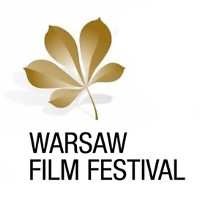This article needs additional citations for verification .(May 2023) |
 Warsaw International Film Festival logo | |
| Location | Warsaw, Poland |
|---|---|
| Founded | 1985 |
| Most recent | 2025 |
| Hosted by | Warsaw Film Foundation |
| No. of films | 84 |
| Festival date | Opening: October 10, 2025 Closing: October 19, 2025 |
| Language | Polish English |
| Website | wff |
Warsaw Film Festival (Polish : Warszawski Festiwal Filmowy; WFF), also known as Warsaw International Film Festival, is an annual international film festival held every October in Warsaw, Poland. [1] [2]
Contents
- History
- Description
- Programmes
- Juries
- Award winners
- International Competition winners
- References
- External links
The 40th edition of the festival took place from 11 to 20 October 2024. [3] The 41st edition of the festival took place from 10 to 19 October 2025, and showcases 112 features and 56 shorts. [4]
